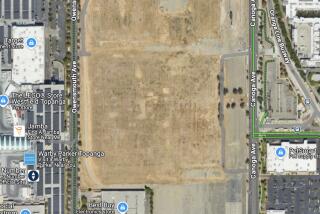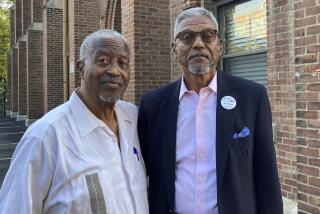Federal Study a Small Price to Pay for Health
- Share via
Two years ago I traveled to New York to attend my grandmother’s 100th birthday party. It was a gala affair with dancing and plenty of nostalgia. Living to 100 is certainly a milestone worth celebrating. At that time I knew that some day I would dance at my own centennial birthday party.
Today I no longer take my longevity for granted.
Last July I was diagnosed with cancer.
It threw me for quite a loop since there is no family history of the disease. After the initial shock wore off, I was angry. Actually, I was livid and furious and filled with unanswerable questions. Why? How? These questions remain unanswered.
My type of cancer, Hodgkin’s disease, has no known cause--although some experts feel environmental factors may be involved. There have been cases of the disease near sites of high radiation.
I am fortunate, though, that it is curable, and now I am resuming my normal life. But I still feel the need for closure.
Perhaps the information I seek is in my own neighborhood. When I moved here 19 years ago with my husband and children, we were seeking an oasis of tranquillity in the turbulent city of Los Angeles.
We thought we had found such an area in the west end of the San Fernando Valley just south of Box Canyon. The schools are good, and the neighborhood is attractive. We stretched our budget a bit and bought a home.
*
At first glance, these tract homes seem picture perfect, but looks can be deceiving. This area has become what might be called a “cancer cluster,” where residents have a higher-than-average occurrence of the disease. Coincidentally, Rocketdyne’s Santa Susana Field Laboratory is just north of our neighborhood.
The laboratory is the site of a multimillion-dollar toxic-waste cleanup. Could there be toxic substances from decades of nuclear and rocket-engine testing hiding just below the beautifully landscaped lawns in the West Valley? If so, such information would destroy home values and spawn many costly lawsuits.
But we may never know for sure.
The federal government recently cut off funding for a health study of the residents in the communities surrounding the Rocketdyne plant.
The connection between toxic waste and the development of certain types of diseases is still being established, but a similar study on chemical and radiation exposure was conducted on workers at the plant. Preliminary studies by UCLA researchers have indicated a higher-than-average cancer death rate, but the final results have yet to be released by the government.
Because of a change in the federal government’s policy, the agency that oversees the study is now the Health and Human Services Department.
But this agency is awaiting further direction from the Centers for Disease Control. With cancer, early detection is critical for treatment and prognosis. While the government plays political pingpong, our health concerns are tabled.
*
Members of the independent advisory council who conducted the original study on Rocketdyne workers are seeking funding to continue their work. They have petitioned both the state and federal governments.
It seems absurd that the health of the community should be so inconsequential that no government agency wants to take responsibility. Perhaps they are waiting for us to hold a bake sale for the funding.
The study on the health of residents in West Hills, Canoga Park, Simi Valley and surrounding areas was estimated to cost $150,000 for a year.
If only 1,000 people were studied, it breaks down to $150 per person, a small price to pay for health. One bottle of medication to counteract the side effects of chemotherapy treatment costs $380--for 15 pills. Cancer treatment is expensive and takes a heavy toll, both physically and emotionally.
Clearly, the consideration is not financial.
So why was the study called off before any reports were made public? Several federal governmental agencies have been involved in research at Rocketdyne. Now these agencies are reluctant to pursue further studies into the health of the area’s residents. Coincidence? I think not!
More unanswered questions pop up all the time. Perhaps it’s time for Rocketdyne’s neighbors to demand answers and accountability.
Let’s be proactive and not radioactive!






